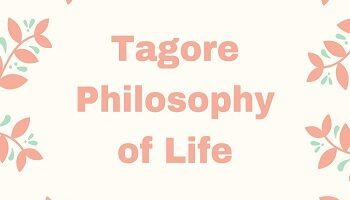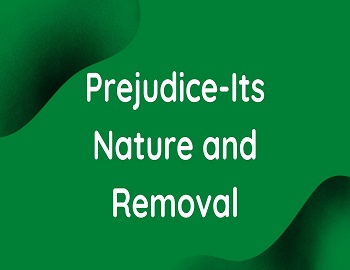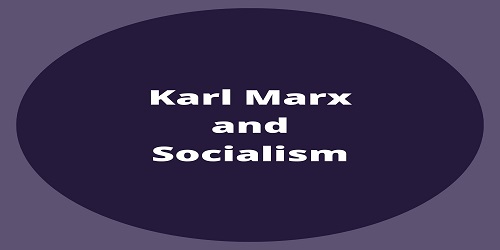Table of Contents
Concept of Pragmatism:
The word pragmatism has been derived from the Greek word “pragma” which means action, from which words like “practice” and “practical” have been derived. Professor Reid gives the opinion about pragmatism “as activity, engagement, commitment, and encounter”. These are regarded as the central theme of pragmatism. It is that school of thought which does not believe in idealism or naturalism. Pragmatism as a distinct and systematic school of thought is a Modern American Philosophy. It reflects American lifestyles, thoughts, and ideology.
As mentioned above, this philosophy originated in America. This was the result of the peculiar problems and situations faced by the people who emigrated from England and other European countries for the sake of Liberty and religious freedom. These people started believing in a new pattern of living. No philosophy except this was suitable for active people who were away from the complications of cultural values and interested in the new pattern of life. Since the emigrants found solutions to their problems through experimentation and reasoning, as such, this philosophy became the basis of American civilization. However, it would be wrong to say that all American thinkers believe only in this philosophy as there are a large number of followers of pragmatists like Emerson and J. Royce. One thing is, however, very clear that pragmatism does not accept the importance of ideals in life. In the words of Ross: “Pragmatism is essentially a humanistic philosophy maintaining that man creates his own values in course of activity, that reality is still in making and awaits parts of its completion from future; that to an unascertainable extent our truths are man-made products.”
William James, John Dewey, Schiller, and Kilpatrick are the chief exponents of this philosophy. Other equivalent names for pragmatism are “Instrumentalism” and “Experimentalism”. Pragmatists opine that there is no established system of ideas that will be true for all times to come. All such systems are relative to the situations in which they develop and the persons they satisfy. In short, pragmatism is basically an attitude or a frame of mind and not a body of ideas. If idealism speaks of ideas and ideals, pragmatism is concerned only with facts. According to this philosophy, education contains those important practical, and useful activities which make a man self-dependent and a useful member of society.
Fundamental Postulates of Pragmatism:
The following are some of the basic or fundamental postulates or concepts of Pragmatism.
(1) Truth- According to pragmatism, truth is that which works and can be verified by experience and by public evidence. Pragmatists hold the view that truth always changes according to time, place, and situation. Pointing towards this fact William James writes- “The truth of an idea is not a stagnant property inherent in it. Truth happens to an idea.” They believe that truth is not a fixed and definite entity but a relative entity that changes from situation to situation and from person to person. Thus there is no absolute truth. It is the result of the various experiments which an individual performs to solve his problems in the course of his growth and development and this builds or forms truth.
(2) Reality- There are several inherent assumptions about reality in pragmatism. “The world as we Experience is real” needing no ultimate truths of idealism or objective realities of realism in addition to man’s experience. While Human Experience is Real it is also always in the process of change. The “real world” is what humans say it is. Therefore, Reality can change. It is this change process called experience that is the essential reality for the pragmatist. Man’s participation in this real world of experience constitutes the basic reality of his existence. They believe in the plural rather than in the singular nature of reality. According to it, experience is the test of truth. Those ideals or values which are testified by experiences are true and real.
(3) Values- Pragmatism believes that there are no fixed or final values, no ultimate goals, and ultimate reality. Pragmatists believe that man can create his own values. Absolute or eternal values beyond man’s experience are not to be found and lead only to a neglect of the search for value in the real world of man’s experience. Value is to be found in the human community’s search for it as men continually reconstruct their values to meet new problems and changes. They reject all absolute aesthetic values regardless of the traditions of professional critics. The consequences of man’s experiences are the measure of value. They further believe that values are obtained from society and all morality is social in essence. Since values are changing and are also in a state of flux, they vary spatially and temporarily. The validity of a value has to be determined by the consequences of putting it into action. Ideas must prove their worth to have value to concrete life.
(4) Judgment- A true judgment is that which yields satisfactory results in an experience and its truth by the way in which it works. The verification of the truth lies through action and results. A judgment becomes true if it is utilitarian and if it works satisfactorily. An idea is neither true nor false before it is tested by experience. Our idea bout an object will be true if the sensible effects we expect from it actually occur.
(5) Mind- Pragmatism believes that the Mind is not a substance or matter but it is a function. It is not static. It is dynamic and ever-changing in accordance with the action which causes change, “Pragmatism is essentially a meditating attitude of mind,” says Ross.
(6) Man Power- Pragmatism attaches great importance to the power of man. By virtue of this power, a man can create an environment useful, beneficial, and conducive to his own development and for the welfare of society.
(7) Knowledge- Pragmatists do not distinguish between ‘truth’ and knowledge. Knowledge-based on common experience is true, genuine, and worthy of acquisition. Pragmatists believe it is knowledge when we have apprehended a truth. So they believe that “if it is knowledge, it must be true.” They do not give credence to intensive knowledge. Knowledge gained through doing, acting, and living is useful. Pragmatists emphasize functional knowledge and understanding.
(8) Ideas- Ideas are also instruments of adaptation. The truth or falsity of an idea depends on its practice. The truth of an idea means its power to work. If ideas work they are true.
(9) Theory and Practice- Practice is before theory. Philosophical issues form education. It is nothing but the formulation of ideas underlying a successful education practice.
(10) Dominated by the concept of Utility- Pragmatism is a utilitarian ideology that holds that the reality of a principle lies in its utility. In other words, only those ideas and things that are true have utility for man. In the words of William James: “It is true because it is useful.”
Pragmatism is a Pluralistic Philosophy:
Pragmatism is a pluralistic philosophy. Here it takes ‘life’ from naturalism and ‘psyche’ from mentalism and evaluates and explains God, nature, and man. It is akin to a dynamic form of idealism and inclined to naturalism in so far as it emphasizes the study of the child and the development of his endowed potentialities. It is thus just in the middle of naturalism and idealism.









Comments (No)